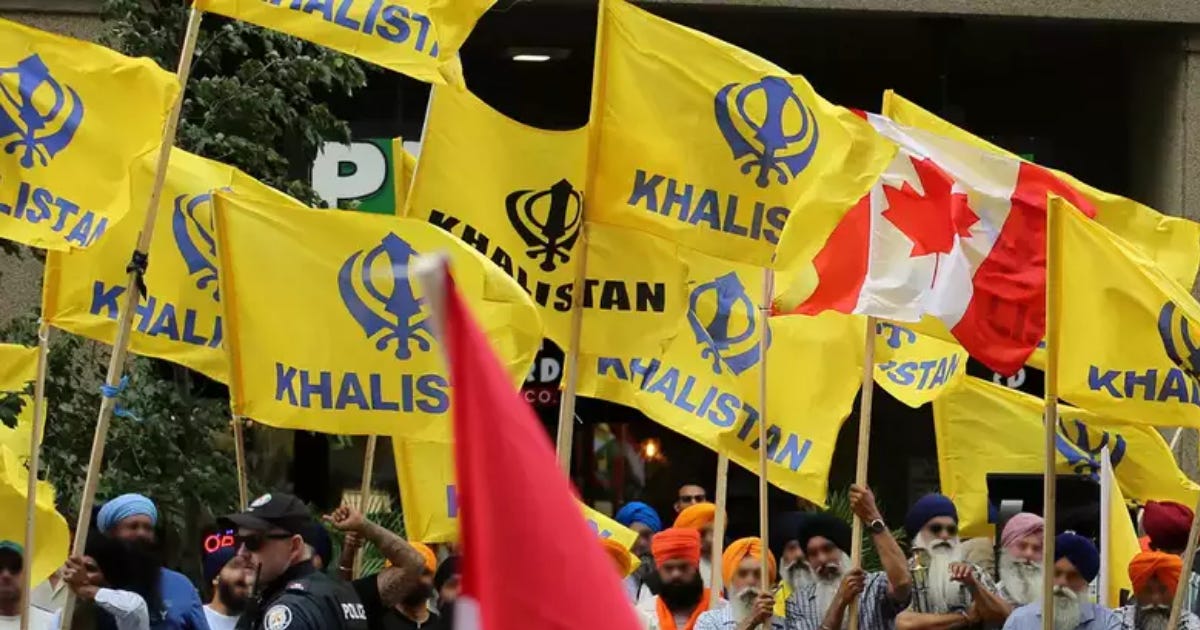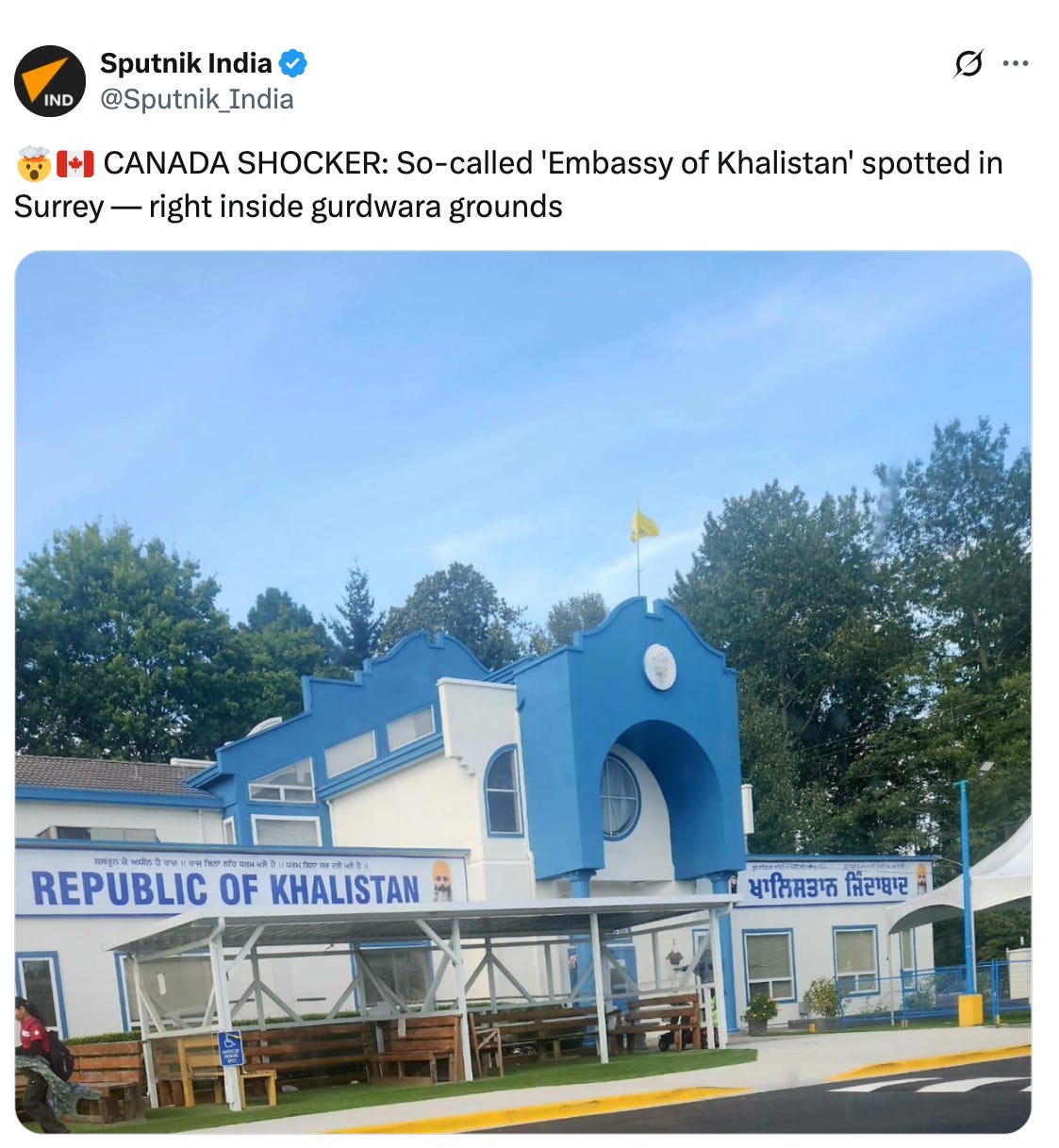Republic of Khalistan banner raised at Surrey Sikh temple
A Sikh temple in Surrey, B.C. has erected a large banner promoting a so-called Republic of Khalistan, drawing support, ridicule, and condemnation online.
A Sikh temple in Surrey, B.C. has erected a large banner promoting a so-called Republic of Khalistan, drawing support, ridicule, and condemnation online.
The promotional banner for a so-called Republic of Khalistan, which has now gone viral, was established on the premises of the Guru Nanak Sikh Gurdwara in the city’s Newton neighbourhood — the same temple where Hardeep Singh Nijjar, a vocal Khalistan separatist, served as president before he was shot dead in the temple parking lot in June 2023.
Critics have pointed to the promotional banner as further evidence of Canada’s inaction toward pro-Khalistan extremism and anti-India separatist activity within its borders.
The temple has long been a source of controversy both in Canada and abroad for displaying posters and banners portraying individuals accused of terrorism as Sikh martyrs, and for openly promoting the creation of an independent Khalistan state carved out of India’s Punjab region.
Large banners inside and outside the gurdwara have featured images of Nijjar, as well as Jarnail Singh Bhindranwale and Talwinder Singh Parmar — two men closely associated with violence and terrorism.
Bhindranwale, killed by Indian forces in 1984 during a siege of the Golden Temple in Amritsar, remains a polarizing figure seen by some Sikhs as a defender of the faith and by others as a militant leader.
Parmar, widely believed to have masterminded the 1985 Air India bombing that killed 329 people, including 280 Canadian citizens, is a particularly contentious figure in Canada.
Though Parmar was never convicted before his death, a Canadian judicial inquiry later concluded he was the architect of the bombing, which remains the deadliest terrorist attack in Canadian history.
The recent 40th anniversary of the bombing, marked in June, revived debate over how Canada has historically handled Khalistani extremism and commemoration of its alleged perpetrators.
In May, the RCMP charged four Indian nationals living in Canada—Amandeep Singh, 22, Karan Brar, 22, Kamalpreet Singh, 22, and Karanpreet Singh, 28—with first-degree murder and conspiracy to commit murder in connection with Nijjar’s killing.
The federal government has previously accused the Indian government of involvement in the murder, a claim New Delhi has strongly denied.





"Welcome to Canada," the global junk-drawer where extremists of every persuasion can waltz in and set up shop.
Deport all of these traitors..!!!